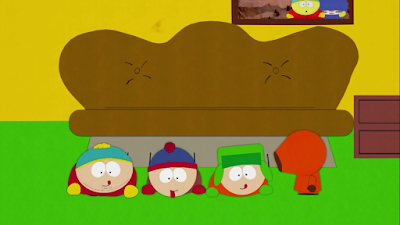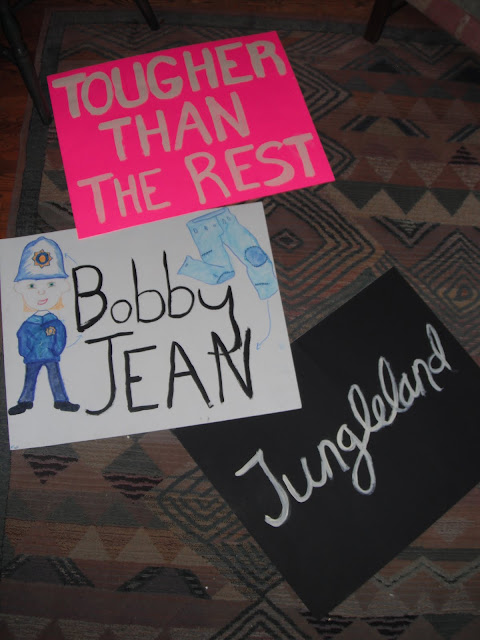That the internet has radically transformed society is
generally accepted with a sense of bemused attachment: it used to take hours or
days to send someone a message which today can be accomplished in the blink of
an eye. You had to get your news from
the Godheads on TV, or the editors of a daily newspaper. Now everyone is an
editor, everyone is a receiver and transmitter of the latest trends.
Where people are quick to realise that the internet has
changed the way we live, fewer people acknowledge that it has actually changed
us. In this day and age, there is no more news. Only editorials,
delivered by average Joes who feel compelled to own current events by
commenting on them, folding them into a meme which they can share, a borrowed
online identity.
What really matters is I'm witty and I like dogs.
How often do you see a tweet with a simple statement of
fact: "There is so much lead in Flint's water the mayor has declared a
state of emergency", versus a statement of opinion: "So tragic what's
happening in Flint right now."
The right or wrong opinion isn't the issue. The issue is
that facts have been superseded by opinions. which have become the currency of
modern life. Because you can't own a fact in the way that you can own a quip.
Remember this next time you try to diffuse a Trump supporter
by explaining that forcing South Korea to pay for America's military presence
there will cause the U.S.A. to lose its strategic influence in Asia. This is a language that's going extinct. Where once upon a time, people watched the news to keep
informed, and discussed it around the water cooler, my generation looks to the
news as an accessory to our online profiles.
The November attacks in Paris weren't an example of 20th century
foreign policy disasters in the Middle East coming home to roost. Nor were they
an exemplar of why terrorism is the weapon of choice for militants who don't
have the resources to fight an open battle (scaring your enemies into expending
their own resources to prevent small scale attacks is far more cost effective).
It was a chance for us to add a red, white and blue filter to our Profile
picture - as a statement of solidarity with the French people, but also a
reminder that we are Very. Passionate. About. World. Events. People.,
#BlackLivesMatter.
Today, news only has value insofar as it can be co-opted
into our online identity. We are ever on the lookout for something to enrage
us, to inspire us, to promote us. The
thing that media has now more than ever has before is that very thing:
"us". Social Media isn't about facts. It's about identities.
Psychologists among you know what happens when
"facts" and "identities" intermingle. It's called cognitive
dissonance and it's a motherfucker.
The old top-down method of information had its share of
problems - mainly that the person who owns the network/newspaper effectively
owned the flow of information, and had it in them to misrepresent people or
events in an arena where they couldn't be challenged. But the benefit was that the people doing the reporting were
expected to know what they were talking about, and voters made decisions based
on generally agreed upon events.
People on either side of the debate decry the
"slant" in the media's depiction of their demagogues, but fail to
acknowledge that their outcry itself is an act of slant. Donald Trump surely
would not have gotten the media coverage he had in the primaries if the
networks weren't keenly aware of how eager viewers were to get angry. More
qualified candidates like Chris Christie wouldn't have had to elbow in for
airtime.
Donald Trump's signature characteristic is his narcissism,
which makes him the perfect candidate for our age. To clarify: to be
narcissistic is not to be conceited, though people often use those expressions
as if they are interchangeable. A person who's conceited thinks they're better than you,
assumes you also think this, and acts accordingly. These people are assholes.
A narcissist, on the other hand, is mentally ill. Though
they can appear conceited, the main divider between narcissists and the rest of
us is that they don't perceive a boundary between themselves and their
surroundings.
"We are the world" is the quintessential summation
of what makes narcissists different from healthy human beings, and it's also
the reason they can be so charming. Narcissists may appear at first to be
deeply caring, open people, willing to do anything to help their fellow man -
because their fellow man is, in their mind, just an extension of themselves.
This becomes a problem when your fellow man's interests
diverge with your own. And it becomes disastrous when a person with such a
twisted view of reality is empowered to control situations that have confounded
better minds for decades in their complexity. For the narcissist, everything is about them. If Mexicans are coming into America, it's
because they want to steal your job and rape your sister, not because they're
running away from violence or deep-seated economic issues in their own country.
South Korea is benefitting from American Military presence
in their country, therefore they should pay for it. Forget that American
presence there protects our interests in a continent which otherwise would be
ceded completely to Chinese and Russian influence. Any solution that doesn't
centre around the narcissist's vision of themselves as the centre of the
universe will not be considered.
That Donald Trump is utterly unfit for office is understood
by a great many pundits and protestors, who continue to shake their heads in
wonderment at how he got this far. But actually, he is the perfect candidate
for our times. Social Media has primed the pump for a Trump presidency
better than the Donald himself ever could. Ten years ago, the ascension of this
man, based on his current method of campaigning, would be as unthinkable as
photographing food and expecting your friends to look at it.
I've heard a lot of talk about how my generation is the
feeling generation, since we are so interconnected and care so deeply about
social causes. But what does caring really look like for a narcissist?
It looks a bit like our response to
Kony 2012. You may
recall a video highlighting a human rights travesty in Uganda got a hundred million views on YouTube, was shared by celebrities like Rihanna
and Justin Beiber, then disseminated through a deeply concerned, justifiably
outraged populace. We all hugged ourselves: see how social media is making the
world a better place?
And then nothing. We all moved on. It became clear to anyone
still watching that the outpouring of support was actually a pose. That
"awareness" was abundant, but action nearly nonexistent. The followup video has less than three million views. The human tragedy was not a call to arms, but
an accessory to be mounted on our twitter feed like a charm on a pandora
bracelet: Look at me, I'm a person who cares.
This is a fundamentally narcissistic way of seeing the
world. A conceited person believes others want to see every detail play out in
their daily life via social media. Only a narcissist views major world events primarily
as a vessel for them to express their identity.
Were the 2015 Paris attacks the result of a medieval,
backward religion trying to encroach on modern values? Or was it a century of
poor foreign policy decisions come home to roost? Neither. It was a red, white
and blue filter to put on your profile photo, just so everyone knew how
"with it" you were.
In this context, the rise of Donald Trump should not be
surprising. The bragging, the over sharing, the constant quest for validation, the
belief that freedom to express an opinion is more important than the facts
underlying that position, is so quintessentially millennial, its no surprise
that these things haven't disqualified him from the race.
Combine that with twenty years of poor decision making by
those in power - from deregulating Wall Street to destabilizing the Middle East
with the Iraq war, leading to mass anger and confusion, and Donald Trump makes perfect sense as a candidate in keeping with our slanted, angry, narcissistic new world order.
I do not mean this to sound reassuring.
From the pundits attempting to weigh in on how this could happen, to the liberals staring in disbelief, people, are still
acting on the assumption that we live in the same world they grew up in, but
that's a lie. The old rule book cannot be used to dictate a new way of life,
thus its been allowed to mutate into something far beyond their control.
Most liberals acknowledge this problem's existence on the right: the rallying cry to "Make America Great Again" presupposes that it was ever great for anyone other than white males, and (more stupidly) that we can turn back the clock on globalization.
But those who fail to acknowledge how social media has affected their perception of events, their impetus to put their own personal stamp on issues that are often beyond their understanding are equally to blame. For this is the climate that Donald Trump needed to thrive, and after ten years of facebook and its ilk we've been conditioned to treat him as legitimate.
For context:
Automatic weapons gave birth to the twentieth century, surely
as the internet gave birth to the 21st. Though alarmists like to draw
comparisons between Donald Trump and Adolf Hitler, the better analogue to
Donald Trump and the many other ways the world seems to be coming apart at the
seams is World War I. Though the ascendance of Donald Trump hopefully won't
kill millions of people or precipitate a sequel that's even more destructive,
it was predicated by major
technological and social change, combined with an inability to adapt to
globalization.
By the end of World War I, survivors were scratching their
heads, at a loss to explain what the hell had just happened. WWII gets more
attention - mostly because it was fought by such colourful characters, and its
cause is easier to understand. WWI was, technically, precipitated by the murder
of an archduke in Serbia - a man whose importance in life was far out of
proportion to the titanic fallout of his death. Take a step back and there were
other things - arms races, nationalism,
treaty networks dictating that if one nation goes to fight, three more
go with her, and the deeply first world problem that Europe really hadn't had a
good war in ages. These things could converge to cause a war, but not the
Great War. A World War became the Great War thanks to new technology used in
the service of old ideas.
That is: wars are fought in battles where two sides agree to
meet, one side does most of the dying and the other is the victor. Usually done
at the whim of a monarch with little to no connection to the suffering of his
people. You've seen it in a hundred movies where opposing forces meet across a
battlefield like so many Sharks and Jets.
And now they had machine guns! Imagine the possibilities. No more firing one shot, then taking five
minutes to load another. Twenty rounds a second! They were certain the war
would be over in a month. The reality is that when technology causes major
social change, you adapt to it, not
the other round.
In this case, both sides had machine guns, so the best you
could do was dig holes across from one another and hide inside. At some point,
a few men would go over the top. Most of them would die. And if we're lucky we
gained ten metres. This is what happens when new technology is incorporated
into old institutions without appreciating how fully it has altered the rules.
And as America blunders itself toward a Trump presidency, it's
hard not to see the connection between this time and that. The world at large
is still reeling - financially and culturally- from the effects of globalization,
and the economic collapse, and while some Americans mourn their losses with a
cry to Make America Great Again, we have overlooked the fact that technology,
specifically, social media, has changed not only the world we live in, but us
ourselves.










